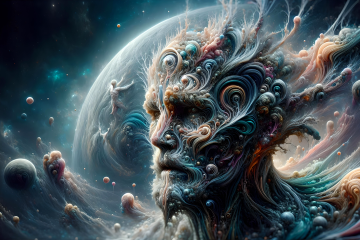At least my equation for happiness
This post came about as the people I work with are at least when we start our journey together massively busy and have more stress, worry and problems that the average Joe, and I feel it’s a part of my role as their coach and mentor to help them find the joy in their business that I have found in mine, having said that this is a summary of the best general advice I have ever found in this area and I feel will work for anyone at any level.
Happiness to me is an abstract term, a little like beauty being in the eye of the beholder, that to me happiness is in the mind of the believer, I believe I am happy there for I am, Joy I can feel, Gratitude I can feel, progress I can see and those are the 3 things that for me equal happiness
Human emotions are massively complex although they can generally be distilled into five basic categories: joy, sadness, fear, anger, and disgust. Each of these emotions can be experienced at varying intensities, from low to high levels for example low level anger is irritation and rage would be high level. Understanding these emotions, their ranges, and the role they play in our happiness is very helpful in fostering a well-balanced and fulfilling life.
It is worth noting that all emotions are helpful and play a part in creating a balanced human, without fear you would be dead very quickly and without the ability to feel sadness there would be no love or indeed joy, so each has its part to play in happiness despite the perspective of positive or negative.
At the same time its worth noting that 4 of the 5 would commonly held to be negative emotions which might explain why being happy is so damn hard.
There are some very good evolutionary reasons for this mind you, optimism is not really a good longevity trait in evolutionary terms James Smith an English Fitness Coach living in Australia has a great take on this, he says that the tendency to see a negative outcome was a survival trait, that all the optimists are dead so it’s the optimist that says it’s fine weakens from across that Channel, out of the gene pool, it’s the optimists who say it’s fine that neighbouring tribe looks friendly, out of the gene pool, it’s the optimists who say that bear looks cuddly, out of the gene pool.
Today though for most of us in the developed world its not quite so dangerous anymore, and that means that its arguable that we should feel less fear, sadness, anger and disgust and be happier and yet, we all know that is not true.
For me happiness occurs when Joy > Sadness + Fear + Anger + Disgust
So my equation is simply
H= J / S+F+A+D
Like most things in life the level of awareness and understanding we have on a subject is crucial to our ability to be able to control ourselves and change what we need to change to get the outcome we seek.
So the first thing to accept is that we don’t really experience reality, we experience how we feel about what happened rather than what actually happened, and we feel a way about something because of the meaning we attach to it, for example we are not really sad that someone is gone we are sad because we didn’t want them to go or because we didn’t think they should have. This is all very natural, we can though, when we understand it’s our perceptions leading our emotions decide to change the way we look at our emotions.
The best way I have found for this is to ask my self-questions that I have to answer.
Sadness is a very natural emotional response to loss, disappointment, or any situation where one feels let down. It can range from mild melancholy to profound grief.
What is the real reason I am sad?
Fear is an instinctual response to perceived threats or danger. It ranges from mild unease to intense terror.
What am I actually afraid of is it real?
Anger arises from perceived injustices, frustrations, or threats. It can vary from mild irritation to intense rage.
What am I annoyed/Angry/frustrated about and why is that making me angry?
Disgust is a strong aversion to something offensive, revolting, or unpleasant. It ranges from mild dislike to severe repulsion.
What is my reason for not liking this?
I know none of those questions will immediately change anything, yet asking them will create curiosity and that will change your view and in turn will help you put those emotions into perspective
So what about Joy how do we focus on and develop that side of the equation?
Joy is a multifaceted emotion composed of several key elements that contribute to its overall experience. These elements work together to create a sense of happiness. Understanding what joy is made up of can help you cultivate this emotion more effectively in your life to balance up the equation.
1. Positive Affect
Positive affect refers to the presence of positive emotions and feelings. This includes feelings of pleasure, elation, and contentment. When individuals experience joy, they often feel a surge of positive energy that lifts their mood and enhances their overall outlook on life.
2. Gratitude
Gratitude is the appreciation for what one has and the recognition of the good in one’s life. Being grateful for what you have o matter how little that might be can significantly enhance your feelings of joy by shifting your focus from what is lacking to what is present. This appreciation can be directed towards people, experiences, or even simple pleasures like the sunshine on your face.
3. Engagement
Engagement refers to being fully absorbed in activities that one finds meaningful and enjoyable. This state, often referred to as “flow,” occurs when individuals are deeply involved in what they are doing, losing track of time and experiencing intense concentration and satisfaction. This is why people say do what you love.
4. Connection
Connection involves meaningful relationships and social interactions. Humans are inherently social beings, and strong, positive connections with others can greatly enhance feelings of joy. This includes relationships with family, friends, and community.
5. Achievement
Achievement is the sense of accomplishment and success that comes from reaching personal or professional goals. The pursuit and attainment of meaningful goals can bring a deep sense of satisfaction and joy.
6. Purpose
Purpose involves having a sense of direction and meaning in life. Knowing that one’s actions and efforts contribute to something greater than oneself can be a powerful source of joy. This sense of purpose can come from various sources, including work, volunteering, or personal projects.
7. Optimism
Optimism is the tendency to have a positive outlook on life and expect good things to happen. Optimistic individuals are more likely to experience joy because they focus on possibilities and opportunities rather than obstacles and setbacks.
8. Mindfulness
Mindfulness is the practice of being present and fully engaged with the current moment. By paying attention to the here and now, individuals can savour experiences and reduce stress, which can enhance their overall sense of joy, simply put live in the moment it is the only one you have.
9. Physical Well-being
Physical well-being includes maintaining good health through proper nutrition, regular exercise, and sufficient rest. Physical health can significantly impact emotional well-being, and taking care of the body can create a foundation for experiencing joy.
Cultivating Joy
To cultivate joy, you can focus on enhancing these components in your life. Here are some practical steps:
- Practice Gratitude: Keep a gratitude journal and regularly note things you are thankful for.
- Engage in Meaningful Activities: Find hobbies and activities that you are passionate about and make time for them.
- Nurture Relationships: Spend quality time with loved ones and build strong social connections.
- Set and Achieve Goals: Set realistic and meaningful goals and celebrate your achievements.
- Find Your Purpose: Reflect on what gives your life meaning and pursue it actively.
- Stay Realistically Optimistic: Focus on the positive aspects of life and maintain a hopeful outlook.
- Be Mindful: Practice mindfulness this can be meditation or simply taking time to be fully present in your daily activities or go for a walk in nature.
- Take Care of Your Body: Prioritise your physical health through diet, exercise, and rest.
In summary, look after yourself, take time to savour the moment and smell the roses, find things you love to do and make time for them and understand that all of us have all these emotions for a reason, and accept that we can, if we wish and if we work on it choose which we feel most often.
If you want to seek Joy every day in what you do get in touch I can help you.








0 Comments